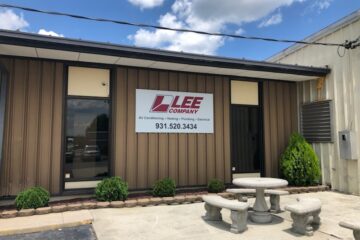Navigating the options for senior care for a loved one is a challenge. Oftentimes, many families are forced into this as a result of an episodic event. I’ve seen this far too often throughout my career as a Certified Senior Advisor (CSA) and it’s my goal to give families an overview of the senior care landscape, so they can make informed, intelligent decisions for their loved ones. My name is Kevin Fehr and I serve as the President & CEO of Amada Senior Care. Our company has been providing non-medical in-home care for seniors throughout Middle TN for the past six years (www.AmadaNashville.com).
Choices in Senior Care: Homecare, Palliative care, and Hospice care
What is home care? A licensed company can deploy caregivers into the home to care for the elderly or sick. It is nonmedical in nature, meaning that our caregivers are prohibited from doing anything invasive to the body. Rather, they assist seniors with common activities of daily living. These activities include help with bathing, dressing, toileting, incontinence, ambulation and transfer. We also provide assistance with meal preparation, laundry, light housekeeping, running errands for our clients and anything that will enhance the senior’s quality of life. If a senior suffers from cognitive impairment, our trained caregivers know exactly how to help those seniors. Alzheimer’s Disease and many other forms of vascular dementia often require some professional assistance from a company like Amada Senior Care in order to give the family some respite and time for themselves. It’s a tough calling to care for a loved one with dementia twenty four hours a day. I am a licensed Certified Dementia Practitioner (CDP) and offer complimentary consultations for any family needing guidance on their specific situation.
Home Care is the entry point into senior care options and is usually the most cost-effective. The next step in the continuum is moving a loved one into an Assisted Living community. These communities often have Memory Care units should your loved one be suffering from dementia. These communities offer caregivers for the residents along with providing meals and activities for the seniors. This option may be needed and a good one for some families, but relocating loved ones out of the comfort of their own homes is a tough decision that requires a thoughtful approach. The COVID-19 pandemic also complicates this approach. Again, consult with a professional on this topic to thoroughly understand all of your options. As a CSA, I’m honored to help you navigate this situation.
When Assisted Living communities cannot deliver the professional care needed for a loved one, your final option is a long-term rehabilitation center. The old vocabulary referred to these places as “Nursing Homes”, but that term has a negative connotation and efforts have been made to provide a non-sterile living arrangement for residents today that historically was not present in the older nursing homes. In these rehab centers, seniors have access to professional or medical care twenty four hours a day. Doctors and nurses are always present to deal with complicated medical issues. While this is a great solution for some, it comes with the highest price tag for senior care options and families must plan accordingly with their finances.
Other terms of note are Home Health (not Home Care) assistance, Palliative care, and Hospice care. Home Health is when a nurse or therapist can come to the home a few days a week to provide skilled care for a loved one. This type of help must be prescribed by a physician and Medicare will pay for the services. Palliative care is an approach that aims to improve the quality of life of seniors with life-threatening conditions. Hospice care must also be prescribed by a physician and that is end of life care and preparation. All hospice care is palliative care, but not all palliative care is hospice care. Again, feel free to call me directly if you need further explanation.
Payment sources for home care and assisted living communities are not supplied through Medicare, as Medicare reimburses for “medical” expenses. There are many payment options for home care and assisted living to augment private pay. Long Term Care Insurance plans cover these expenses, along with VA benefits for veterans, and other options are available. Feel free to call Amada Senior Care to learn more about payment options for senior care. 615-933-7494
On behalf of the over 100 employees who work for Amada Senior Care, it has been my honor to help readers navigate the complex world of senior care and I want to reaffirm with you that you are not alone in this journey. I have been blessed over the past 6+ years to help hundreds of families and it’s an honor to lead an ethically-based, Christian organization that values the lives of our senior community. God Bless,
Kevin B. Fehr, CSA, CDP, President & CEO, Certified Dementia Practitioner, Amada Senior Care Nashville, Amada Senior Care Bucks/Mont. Co. – www.amadanashville.com














